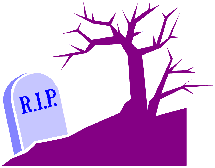|
Sometimes this process does not work because the town is so little it didn't make it into the atlas, or the town no longer exists because it was swallowed up by a bigger town, or it was just abandoned by the majority of its earlier settlers. Now what do you do?
The problem of locating a place name that has been abbreviated or appears in another form such as a different spelling is difficult to resolve. If you have ancestry in any of the counties of Northern Ireland help is at hand. The Northern Ireland Place-Name Project, which was established in 1987, has been researching place names on the Northern Ireland Ordnance Survey maps. To date, seven volumes have been published listing information about place names in the counties of Antrim, Londonderry or Derry, and Down. Plans are in the works to publish volumes for counties Fermanagh and Tyrone. Each place name volume is arranged by barony and then by parish. The place names within each parish are then listed followed by ways the place name appears in various documents over the centuries. Also listed is the local pronunciation of the place name and geographical and historical details about each. By far the most common problem associated with place names is misspelling. This is true in every county and state in America as well. This happened in records generated in all of the countries to which the Irish immigrated. Most Irish immigrants prior to the 20th century had little formal schooling. If they were able to write, words were usually spelled phonetically. Those in other countries charged with keeping records may have spelled both personal and place names the same way�phonetically. Irish gazetteers and place-name books can be used to check the spelling of townland, town, and city names. The one most readily available and used is the 1851 edition of General Alphabetical Index to the Townlands and Towns, Parishes and Baronies of Ireland. This resource is arranged in alphabetical order by place names. It is necessary to be creative in the way you look for place names in this book. When the book above doesn't work for you go to Townlands in Poor Law Unions. This book contains information for the various places found within the poor law unions in Ireland. Listed at the top of each civil registration page is the Superintendent Registrar�s District, the Registrar�s District, the Union, and the county. Francis McCaffry�s birth was registered in the Superintendent Registrar�s District of Bawnboy, the Registrar�s District of Ballyconnell, and the Union of Bawnboy. This information was key to finding the official spelling of the place name in the book Townlands in Poor Law Unions. There are some Irish place name finding aids on the Internet. The IreAtlas Project is similar to the �Townland Index� book. It is a searchable database that lists Irish townlands, towns and cities as well as the county, barony, civil parish, poor law union, and province in which each is found. The Locus Project, a work in progress, lists place names in Ireland using historical geographic spellings as found in ancient manuscripts. It also contains links to other Irish place name sites. The Locus Project http://www.ucc.ie/locus/ IreAtlas Project http://www.seanruad.com Let us practice using some United States finding aids for similar questions of jurisdiction for the immigrants in this country. |
|
|
 Or, suppose your Irish ancestor�s tombstone inscription listed Donegal, Ireland as his place of birth. There are three townlands and one town with this name in three different counties � Cork, Donegal, and Tipperary. There is a county by this name. There is both a civil parish (equated to a Church of Ireland parish) and a Catholic parish by this name. There is a poor law union and a civil registration district by this name. Which place name applies to your ancestor? You will need to understand Irish jurisdictions.
Or, suppose your Irish ancestor�s tombstone inscription listed Donegal, Ireland as his place of birth. There are three townlands and one town with this name in three different counties � Cork, Donegal, and Tipperary. There is a county by this name. There is both a civil parish (equated to a Church of Ireland parish) and a Catholic parish by this name. There is a poor law union and a civil registration district by this name. Which place name applies to your ancestor? You will need to understand Irish jurisdictions.